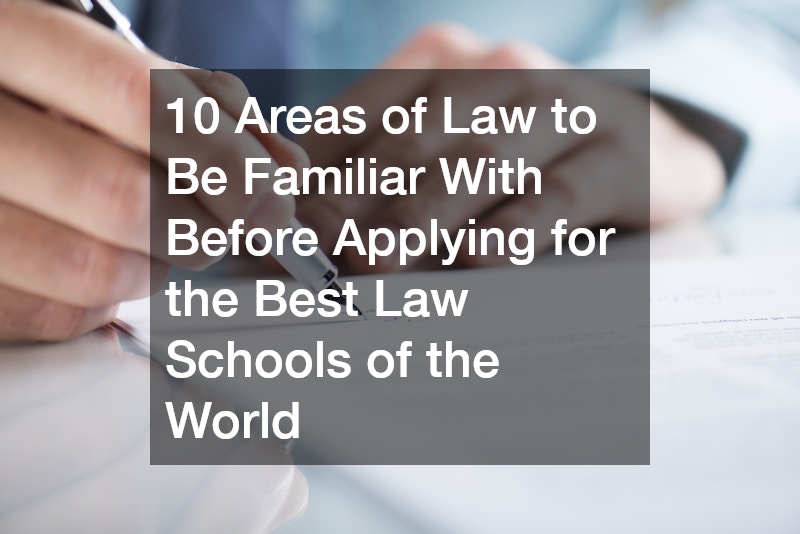Your first meeting with your bankruptcy attorney can be confusing because you aren’t sure what to expect. Most people explore bankruptcy when facing a creditor lawsuit, repossession, foreclosure, or wage garnishment. After that, the attorney will tell you whether or not filing for bankruptcy will solve your problems.
How do you decide which bankruptcy attorney is right for you? How does bankruptcy work? To help make the best decisions, below are ten bankruptcy questions to ask your attorney during a legal consultation.
1. What Are the Most Common Types of Bankruptcy?
The Bankruptcy Code in the United States has six types of bankruptcies. They include chapters 7, 9, 11, 12, 13, and 15. Each of these provisions aims to cater to people facing varying circumstances that render them bankrupt. One of the numerous bankruptcy questions is which type of bankruptcy I should file. Common types of bankruptcy include:
Chapter 7 Bankruptcy
Also known as liquidation bankruptcy, chapter 7 bankruptcy aims to help you sell your assets to pay creditors. Businesses or individuals can file Chapter 7 bankruptcy to surrender all assets for liquidation, a process that a court-appointed trustee must oversee.
Financial planners will encourage you to file a Chapter 7 bankruptcy because it is fast and is one of the quickest ways to get you out of debt. A Chapter 7 filing can take about four months or less from start to final resolution. Also, you may get to keep some of your personal properties as the law aims to leave you with enough to keep working and living. Individual properties exempt from liquidation include furniture, automobiles, clothing, home equity, and pensions.
Chapter 13 Bankruptcy
Here, you ask for a chance to extend your credit repayment period and save some of your property from liquidation. Usually, debtors get three to five years to repay what they owe. The court considers factors like a business’s or individual’s income, the value of your property, and how much you owe. Filing Chapter 13 bankruptcy protects your home from foreclosure and allows you enough time to catch up on late mortgage repayments.
Instead of the creditor, the court orders a court-appointed trustee to collect funds and distribute them to the owed creditors. There’s to be no contact between the debtor and creditor, and the individual or business who filed for bankruptcy must submit monthly payments until the debt is paid in full.
2. Will I Have to Sell My Vehicle?
Most people that file for bankruptcy can keep their vehicle and home. However, the type of bankruptcy you choose dictates which assets should be liquidated to pay off your debts. In Chapter 7 bankruptcy, for example, you can sell other possessions but retain your home, automobiles, and other personal properties.
On the other hand, in Chapter 13 bankruptcy, the rules are slightly different. Here, you get to keep your assets by committing to a repayment plan over a particular period stipulated by the court. One of the most critical bankruptcy questions to ask your attorney is which route to take when filing for bankruptcy. Your attorney will encourage you to remain honest about how many assets and resources you own and what your priorities are.
While bankruptcy seems ideal, it reflects on your credit long after you’re no longer bankrupt. This can subject you to adverse auto loan rates should you want to purchase a vehicle or a home loan.

3. What About Loan Consolidation?
Also known as debt consolidation, loan consolidation entails pooling all your credit card accounts or high-cost loans into one debt with a more favorable interest rate. Loan consolidation is a viable option for people considering filing for bankruptcy but can qualify for new credit.
Say you want to apply for truck financing, and your credit isn’t as severely affected by your inability to keep up with your debts; choosing loan consolidation has far milder consequences on your credit rate than bankruptcy. Some of the advantages of consolidating your loans include:
- A consolidated loan has a fixed interest rate that isn’t affected by fluctuating market rates, which can increase costs, especially if you have credit card debt.
- A consolidated loan is easy to budget because it has fixed monthly payments spread over a long period.
- Unlike in bankruptcy, loan consolidation can benefit your credit score or leave it intact if you honor all your monthly payments on your combined loans.
- Loan consolidation applies to different types of debts, including personal loans, medical bills, auto loans, or loans from friends.
4. What Are My Alternatives to Bankruptcy?
When your debt becomes unmanageable, bankruptcy becomes your saving grace but at the cost of immense injury to your credit score. Are there other options for filing for bankruptcy? This is one of the many essential bankruptcy questions to ask on your first visit with your attorney. Below are viable alternatives your Certified Public Accountant or CPA may encourage you to consider before filing for bankruptcy.
Loan Consolidation
When a debtor experiences difficulty paying their debts but is yet to miss any payments and their credit is still intact, loan consolidation is an excellent alternative to bankruptcy. Loan consolidation merges all your debts/loans with high-interest rates to become one loan you can finance at a lower interest fixed monthly rate over a manageable period.
The debtor can take out a personal loan, credit card, student Loan, or home equity loan to finance their consolidated loan.
Credit Counseling
Seeking help from a credit counselor informs you of many options to regain control of your spiraling finances. A credit counselor helps you devise a plan to budget for your expenses based on your income.
Credit counselors can contact your creditors to work out a plan, like lowering your payments or stretching the repayment period to relieve you of the stress of servicing a debt/loan. They can help you avoid bankruptcy by highlighting poor habits like overspending and financial indiscipline, which could be the culprits behind your current predicament.
Debt Relief
While risky, debt relief is another standard option people consider when facing bankruptcy. Debt relief is where you approach a debt relief provider to help negotiate with your creditors and ultimately lower your debt burden. Owing to the poor regulations in this sector, debt relief may not be the best option for most consumers due to the risks involved.
While a few legitimate debt relief providers look out for your best interests, most don’t. Debt relief isn’t the best choice for many because their services are pretty expensive compared to credit counselors, which can damage your credit score. Plus, it often fails, which leaves no choice but to file for bankruptcy.
Debt Management Plan
A debt management plan is an arrangement devised by a credit counselor to repay your debt. After a credit counselor reviews your finances and points out a fair amount you can put forward towards paying your debt, they approach your creditors and negotiate their idea. The goal is to give you three to five years to resolve your debts.
Note that while a debt management plan (DMP) suits most debts, the law bars you from taking a DMP on unpaid child support or alimony. You might have to file for bankruptcy if you fail to keep up with the re-negotiated monthly payment as per your DMP agreement.

5. How Will Bankruptcy Impact My Estate Plan?
An estate plan is a legal action stipulating how one’s assets are to be shared and distributed upon an individual’s passing away or incapacitation. There are a couple of ways that bankruptcy can affect your estate plan. On the one hand, you may file for bankruptcy and die before the process is complete. Alternatively, one of the beneficiaries of your estate plan can file for bankruptcy before you pass away. While complicated, filing for bankruptcy under such circumstances isn’t impossible. Below is a closer look.
When One Dies Amidst a Pending Chapter 7 Case
In most legal matters, the death of an individual nullifies all pending legal processes and renders them closed. In bankruptcy, however, the process doesn’t stop because a loved one has passed away. The bankruptcy case disrupts the execution of an estate plan because the bankruptcy process has to conclude first.
Should you pass away with a pending Chapter 7 bankruptcy, the executor or trustee of your estate must step in to handle the case in your absence. Everything continues as if you’re still alive. Once the liquidation process is complete and properties are exempt from the process, they can be subdivided among the deceased loved ones as per their will or trust’s wishes.
When One Dies During a Pending Chapter 13 Case
Things can get complicated when an individual dies amidst a pending Chapter 13 bankruptcy case. The plan to repay your debt over three to five years remains in place and now becomes your estate plan executor or administrator’s problem to solve. Some of the options available for your estate administrator to pursue in this case include converting the Chapter 13 case into a Chapter 7 case, dismissing the case, or proceeding with the case as intended by the court before the passing.
According to estate law experts, what happens to your estate upon your passing with a pending bankruptcy case depends on several circumstances. Seeking the help of an experienced bankruptcy attorney sets you up to make the best out of an unfortunate situation.
6. Do I Need Professional Legal Support for My Bankruptcy Case?
What can a lawyer do that I can’t do myself? It’s a top bankruptcy question to ask yourself when considering filing for bankruptcy. A lawyer prevents you from making rookie mistakes that could hinder bankruptcy or keep the court trustee from discharging debts. Other purposes a lawyer serves include guiding and helping you understand issues like:
- Which assets are exempt from the process
- How long the bankruptcy process will take
- Whether or not bankruptcy is the right solution for your woes
- The documentation necessary for a flawless bankruptcy process
- How to maneuver life after being declared bankrupt

7. How Do I Know If I’m Working With a Competent Legal Team?
It’s one of the many lingering bankruptcy questions to ask yourself to determine whether you’re in the right hands. One of the top qualities a competent legal team possesses includes excellent communication skills. A competent bankruptcy attorney is articulate, a good listener, and boasts exceptional written communication. Other qualities include:
- Great Judgement
- Analytical
- Good researcher
- Excellent people skills
- Patient and persevering
- Creative
- Knowledgeable and experienced
8. Will My Personal Bankruptcy Impact My Business?
One of the first bankruptcy questions to ask your small business attorneys is how your business will be affected if you file for bankruptcy. Your business will suffer mild or extensive repercussions of filing for personal bankruptcy. Below is how personal bankruptcy can affect different types of businesses.
- Sole proprietorship: This is a business that’s legally connected to the owner. Therefore, income and losses reflect on your income tax. If you file for bankruptcy, your business is included as part of your assets and can be liquidated to settle your debts.
- Limited Liability Company (LLC): This is a business that exists as a separate entity from its owner. Therefore, filing for personal bankruptcy does not cause disturbances or affect the management of the business.
- Partnership: A partnership is separate from your assets as two or more people own the business. Therefore, if you or one of the partners file for bankruptcy, the business cannot be listed as part of the assets that face dissolution.
- Corporations: Personal bankruptcy will not affect your corporation as the business structure protects its owners and shareholders from losses, debts, and liabilities. However, your shares form part of your assets and can be sold by a court-appointed trustee to repay debts.

9. Will My Bankruptcy Case Impact My Divorce?
If you’re considering divorce, filing for bankruptcy can solve some issues and create new ones. Below is a closer look at how bankruptcy can impact various aspects of divorce.
Division of Property
If you file for bankruptcy and later decide to divorce your partner, the bankruptcy court stops the creditors from reclaiming your property. The bankruptcy court has more authority over a divorce court. Thus, the divorce court can’t order the division of property held up in bankruptcy estate. Filing for bankruptcy may help rid you of debts but will significantly delay divorce. It helps ease the process if the couple signs prenuptial agreements before marriage. A prenup agreement stipulates what belongs to who and how assets should be divided should the marriage fail.
Property Exemptions
In most states, bankruptcy laws provide ways couples can complete the bankruptcy process before filing for divorce. This way, they can save more of their assets and have substantial property left to divide or sustain their livelihoods after the divorce while living debt free.
10. How Can I Move Forward After Filing for Bankruptcy?
Life after bankruptcy can seem different from what you’re used to, especially when spending and planning for your money. The all-important bankruptcy question to ask in this case is, “Now that deal is done and I’ve been declared bankrupt, what’s next?” To regain control of your finances, pay your bills on time, keep going to work and maintain a home, and ensure you have a substantial balance saved in your bank account. Seek help from commercial banks whenever you plan to take a significant loan or mortgage.
Bottom Line
Undoubtedly, seeking legal assistance is the wisest decision for someone whose debts have become unmanageable. To point you in the right direction, above are answers to top bankruptcy questions to ask during a legal consultation.




